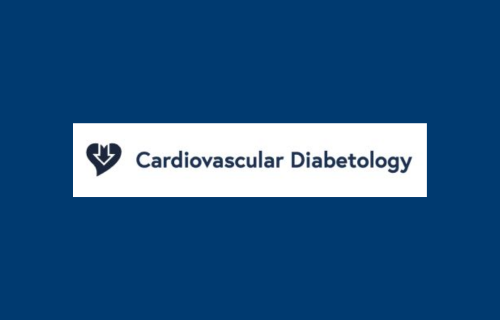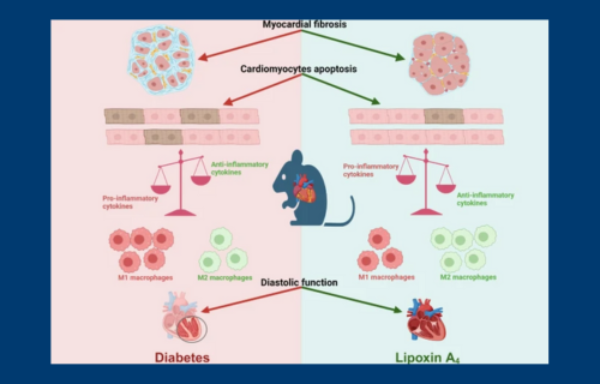A potential new treatment for diabetes-induced heart disease
Wednesday, 27 November, 2024
Share

Congratulations to UCD School of Medicine co-authors Prof Catherine Godson and Dr Eoin Brennan on their recently published paper in Cardiovascular Diabetology, titled 'Lipoxin A4improves cardiac remodeling and function in diabetes-associated cardiac dysfunction'. Prof Godson and Dr Brennan are collaborating with colleagues at Monash University to investigate endogenous lipoxin A4 and novel synthetic mimetics of lipoxin A4 as therapeutics for diabetes-associated vascular complications. This study focuses on the protective effects of natural lipoxin A4, providing the platform for our ongoing studies investigating synthetic mimetics of lipoxin A4, designed at UCD, which may be more effective as stable drugs for use in patients. This project highlights the numerous benefits of international/transglobal collaboration.
The following content is from World Pharma News, published 22 November 2024.
 The preclinical study found LXA4, which is known for its "calming agent" action in turning off the body’s inflammatory response and preventing chronic inflammation, could also serve as a potential new treatment for diabetes-induced heart disease.
The preclinical study found LXA4, which is known for its "calming agent" action in turning off the body’s inflammatory response and preventing chronic inflammation, could also serve as a potential new treatment for diabetes-induced heart disease.
Heart conditions like atherosclerosis, heart attacks and heart failure are the leading killers of people with diabetes, driving a growing global health crisis.
Senior author Dr Chengxue Helena Qin, from the Monash Institute of Pharmaceutical Sciences (MIPS), said chronic inflammation plays a key role in these heart problems, causing ongoing damage to the diabetic heart over time.
"We found that LXA4 could halve inflammation and scar formation, specifically in cases of heart disease induced by diabetes, as seen in the preclinical animal models," Dr Qin said.
"With recent advancements in developing more 'drug-like' LXA4, our findings point to the potential of LXA4-based therapies as a promising new way to manage diabetic heart disease."
Another co-author of the research, Senior Research Fellow at Monash’s Department of Diabetes, Dr Phillip Kantharidis said currently, heart inflammation in diabetic patients is treated the same way as that of other heart disease patients.
"This study opens up the possibility of more targeted and effective treatment possibilities for diabetic heart disease patients when combined with their usual blood sugar management medication," Dr Kantharidis said.
The first author of the research, MIPS PhD candidate Ting Fu, said the team observed the beneficial effect of LXA4 on the immune system within the diabetic heart.
"We saw the molecule stimulate reparative macrophages - a type of white blood cell - within the diabetic heart," Ms Fu said.
"These good macrophages reduced scar formation (due to chronic inflammation) in the heart and also helped to improve the overall function."
As next steps, efforts to create a stable drug version based on the LXA4 molecule are in progress.
The researchers are also investigating the broader applicability of this study to a range of other inflammatory diseases and exploring other drug options to address different aspects of cardio-pulmonary diseases.
The research was a collaborative effort between MIPS, the Department of Diabetes at Monash University’s Faculty of Medicine, Nursing and Health Sciences, and University College Dublin.
Fu T, Mohan M, Bose M, Brennan EP, Kiriazis H, Deo M, Nowell CJ, Godson C, Cooper ME, Zhao P, Kemp-Harper BK, Woodman OL, Ritchie RH, Kantharidis P, Qin CX.
Lipoxin A4 improves cardiac remodeling and function in diabetes-associated cardiac dysfunction.
Cardiovasc Diabetol. 2024 Nov 20;23(1):413. doi:(opens in a new window)10.1186/s12933-024-02501-x